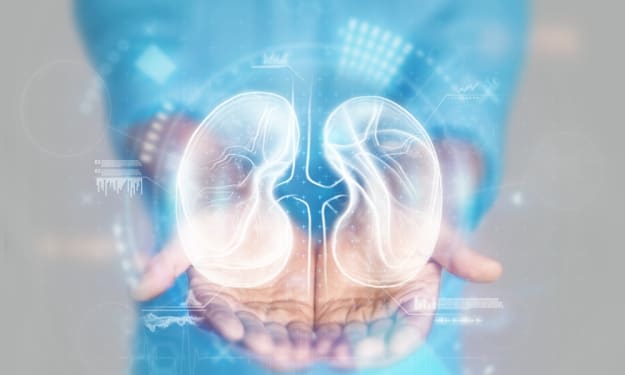Kidney Stones and the Environment: Causes, Prevention, and Treatment.
Understanding the Link Between Kidney Stones and Environmental Factors

Kidney stones are a common ailment that affects a significant number of individuals globally. These small, hard deposits that form in the kidneys can cause immense discomfort and pain. While kidney stones have various causes, it is important to understand the role of the environment in their formation and the available treatment options, including kidney stone operation.
Understanding Kidney Stones
Kidney stones, or renal calculi, are solid masses that develop within the kidneys. They are typically composed of substances found naturally in urine, such as calcium, oxalate, uric acid, and cystine. When these substances become highly concentrated, they crystallize and form stones. The symptoms of kidney stones often include severe pain in the lower back or abdomen, blood in the urine, frequent urination, and discomfort during urination.
Environmental Factors and Kidney Stone Formation
The environment plays a significant role in the formation of kidney stones. Understanding these factors can help individuals take preventive measures to reduce their risk. Let's explore some key environmental factors:
Climate and Dehydration
Research suggests that individuals living in hot and dry climates are more susceptible to kidney stone formation. In such environments, high temperatures and increased perspiration can lead to dehydration, reducing urine volume and concentration. This creates an environment conducive to stone formation. Moreover, individuals residing in warmer climates may consume diets that are rich in stone-forming substances, such as sodium and animal proteins.
Water Quality and Mineral Content
The quality of the water we consume can also impact the development of kidney stones. Hard water, containing elevated levels of minerals like calcium and magnesium, has been associated with a higher risk of stone formation. On the other hand, soft water, treated to remove these minerals, may reduce the risk. It is important to stay hydrated with clean, filtered water to help prevent kidney stones.
Diet and Lifestyle
Dietary choices and lifestyle factors greatly influence the formation of kidney stones. Consuming foods high in oxalate, such as spinach, chocolate, and certain nuts, can increase the risk of calcium oxalate stone formation. Similarly, a diet high in sodium and animal proteins can contribute to stone development. Maintaining a balanced diet rich in fruits, vegetables, and whole grains can help reduce the risk of kidney stones. Additionally, adopting a physically active lifestyle can promote overall kidney health.
Occupational Hazards
Certain occupations expose individuals to environmental factors that promote kidney stone formation. Workers in industries with high temperatures and dehydration, such as agriculture or construction, are at a higher risk. Additionally, exposure to chemicals or substances like silica or cadmium in specific occupations can increase the incidence of kidney stones.
Prevention and Treatment Options
Preventing kidney stones involves a combination of lifestyle modifications and medical interventions. Here are some key preventive measures:
- Stay adequately hydrated by drinking plenty of water throughout the day.
- Follow a balanced diet low in sodium and oxalate-rich foods.
- Limit the consumption of animal proteins and processed foods.
- Avoid excessive intake of caffeine and carbonated beverages.
- Maintain a healthy weight through regular exercise and a balanced diet.
- If kidney stones do develop, various treatment options are available
Depending on the size and location of the stones. These can include:
- Increased fluid intake to promote the passage of stones.
- Medications to manage pain and facilitate stone passage.
- Extracorporeal Shock Wave Lithotripsy (ESWL) breaks up stones into smaller pieces.
- Ureteroscopy to remove or break up stones using a thin tube.
- Surgical interventions, including kidney stone operation, for larger or more complex stones.
Kidney Stone Operation: When Is It Necessary?
In some cases, kidney stone operation becomes necessary for the removal of larger or more problematic stones. This surgical procedure involves the removal of stones from the kidney or urinary tract. The specific approach may vary depending on the stone's size, location, and individual patient factors. Kidney stone operation is typically performed by urologists with expertise in stone management.
Conclusion
Kidney stones are a common condition influenced by environmental factors. By understanding the impact of climate, water quality, diet, and occupational hazards, individuals can take proactive steps to reduce their risk. Prevention strategies such as staying hydrated, adopting a balanced diet, and maintaining a healthy lifestyle are key. However, if kidney stones do occur, various treatment options, including kidney stone operation, are available to alleviate symptoms and promote stone removal. It is important to consult with healthcare professionals for personalized guidance and care.
About the Creator
RG Hospital
RG Hospital offers unrivaled expertise, state-of-the-art facilities, and personalized care. Trust the best urology hospital in India to deliver world-class care and innovative solutions for all your urological needs.






Comments
There are no comments for this story
Be the first to respond and start the conversation.